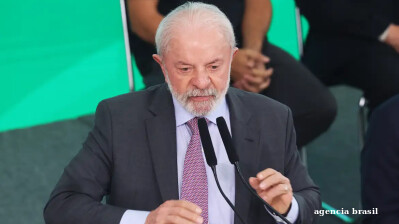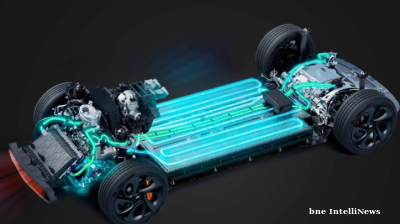Nato directly accused China of supplying Russia with arms and ammunition for the war in Ukraine for the first time in a declaration released during the current Nato summit in Washington, The New York Times (NYT) reported on July 10.
Nato Secretary General Jens Stoltenberg told reporters it was the first time the 32 allies had jointly labelled China a decisive enabler of Russia’s war and called it an important message.
The tone has taken a sharp turn for the worse, since the Nato summit that got underway in Washington on July 9 as Nato members for the first time accused Beijing of becoming a "decisive enabler of Russia’s war against Ukraine," demanding an immediate halt to shipments of "weapons components" and other critical technology to the Russian military.
“The declaration demonstrates that Nato allies now collectively understand this challenge and are calling on the P.R.C. to cease this activity,” said Jake Sullivan, Biden’s national security adviser, the NYT reports. “If this P.R.C. support continues, it will degrade its relations across Europe, and the United States will continue to impose sanctions on P.R.C. entities involved in this activity, in coordination with our European allies.”
Specifically, amongst the allegations is evidence that Beijing was developing an attack drone for the conflict with Ukraine, according to US intelligence. The US briefed its Nato allies on China’s support in the run-up to the summit, according to reports. The declaration says that China poses “systemic challenges to Euro-Atlantic security”, including through cyber activities and disinformation as well as its development of counter-space capabilities. But US officials have said that China is still holding off directly providing weapons and artillery.
Tensions between Beijing and Washington have been growing thanks to China’s increasing aggression in the South China Sea, but the new declarations suggests that the West increasingly sees China as a threat to European security, thanks to its support of Russia’s war in Ukraine.
So far, Washington has shied away from escalating those tensions by saying Beijing is directly supplying Russia with weapons. For its part, China has also been openly supplying Russia with dual-use goods, but refrained, publicly, from overtly selling Russia military supplies.
Now relations between China and Nato have taken another step down the ladder. The US provided intelligence evidence to Nato countries to overcome scepticism about China's involvement during the Nato summit, in which the US Treasury Department published the names of Chinese front companies and manufacturers funnelling technology to Russia. Hong Kong in particular, has become a major conduit for the flow of technology into Russia.
The Nato declaration also accused China of engaging in “malicious cyber and hybrid activities, including disinformation” targeting the US and Europe. In response, China has denied being a significant factor in the war and has accused Washington of hypocrisy, highlighting the substantial military aid the US provides to Ukraine.
Chinese Foreign Ministry spokesman Wang Wenbin called the US accusations “hypocritical and highly irresponsible” in May, without denying the specifics of the claims, according to NYT.
As bne IntelliNews reported, technology sanctions have failed to stem the flow of machinery and microchips to Russia, with imports of technology in 2023 totalling only 2% less than pre-war in monetary terms.
The accusation was contained in a declaration approved by the 32 Nato leaders before a dinner at the White House and will take tension up a notch. The declaration warned that China’s growing support for Russia will have “negative repercussions.”
“China cannot enable the largest war in Europe in recent history without this negatively impacting its interests and reputation,” the declaration stated, specifically pointing to China’s “large-scale support for Russia’s defence industrial base,” the NYT reports.
While the declaration did not detail any specific repercussions, the threat of economic sanctions has long hung over Beijing, which has been careful to avoid bringing down sanctions on its banks and companies that could harm its $1 trillion of annual exports to the collective West. China is much more exposed to trade with the West than Russia, which was easily able to reorientate its commodity-dominated exports to new markets in Asia after extreme sanctions were imposed in 2022.
However, imposing trade sanctions on China is likely to have an even more extreme boomerang effect on Europe than those imposed on Russia has had as China is a major export market for European goods in particular. For example, Germany is heavily dependent on the Chinese market for high-end cars and luxury goods exports.
China has joined Russian President Vladimir Putin in opposing what they call the “unipolar hegemony of the US” and called for a multipolar global set up that could be overseen by bodies like the UN. Putin and Chinese President Xi Jinping declared a “partnership without limits” during a three-day trip to Moscow in March 2023 that was an open act of defiance of Western criticism of Russia’s invasion of Ukraine and openly positioned China as in conflict with the West for the first time.
Putin followed that visit up with his own trip to Beijing in May where he held in-depth wide-ranging talks with Xi on their joint response to sanctions and the US-led attempts to limit their partnership. In a sign of Russia’s growing closeness to China, Xi gave Putin a bear hug at their first meeting, a very unusual gesture in Chinese diplomacy.
In another sign of the growing multinational dimension to the BRICS countries cooperation and defiance of the threat of sanctions, Indian Prime Minister Narendra Modi just completed a similar two-day visit to Moscow in defiance of Western pressure to cut business ties with Russia and signed off on a string of deals to bolster trade and investment. Modi likewise gave Putin a bear hug on their first meeting and defiantly said Western criticism would be ignored in the face of what is in India’s own national interests.
The Biden administration has become increasingly aggressive in its meetings with Xi this year. Both US Secretary of State Antony Blinken and US Treasury Secretary Janet Yellen travelled to Beijing early this year to meet Xi, and both threatened Xi with sanctions and trade tariffs if Beijing didn’t reduce its cooperation with Moscow. Xi’s entreaties to put relations back on a more consolatory and cooperative basis were ignored.
Blinken has been a Russia, China hawk since he took over as Secretary of State two years ago, calling Russia an “enemy” and China the “leading US rival” in his first major foreign policy speech in March 2021.
The new escalation in tensions threatens to undo any progress made in US-China relations during the November meeting between US President Joe Biden and Xi in California. At that meeting, Biden had warned Xi about interfering in the 2024 presidential election, but evidence of China's substantial role in supporting Russia's war effort was not yet available.
News

Russia will remain defiant against US sanctions pressure, Putin claims
The sanctions come at a time when Russia’s two largest energy buyers, China and India, have shown signs of reducing their oil imports from Russia.

Russia rules out seizing EU assets but warns of retaliation if confiscations proceed
Russia will not seize European Union assets currently operating within its borders, Russian Deputy Finance Minister Alexei Moiseev has said.

China’s state-owned oil giants halt Russian crude purchases in response to US sanctions
China’s state-owned oil giants have paused their purchase of Russian crude oil in response to recent US sanctions targeting Moscow’s two largest oil firms, Rosneft and Lukoil

Switzerland reopens Baghdad embassy after 30-year closure
Switzerland reopened its Baghdad embassy after 30 years, with Iraqi and Swiss foreign ministers officiating ceremony reflecting confidence in Iraq's stability and signalling expanded economic cooperation.



